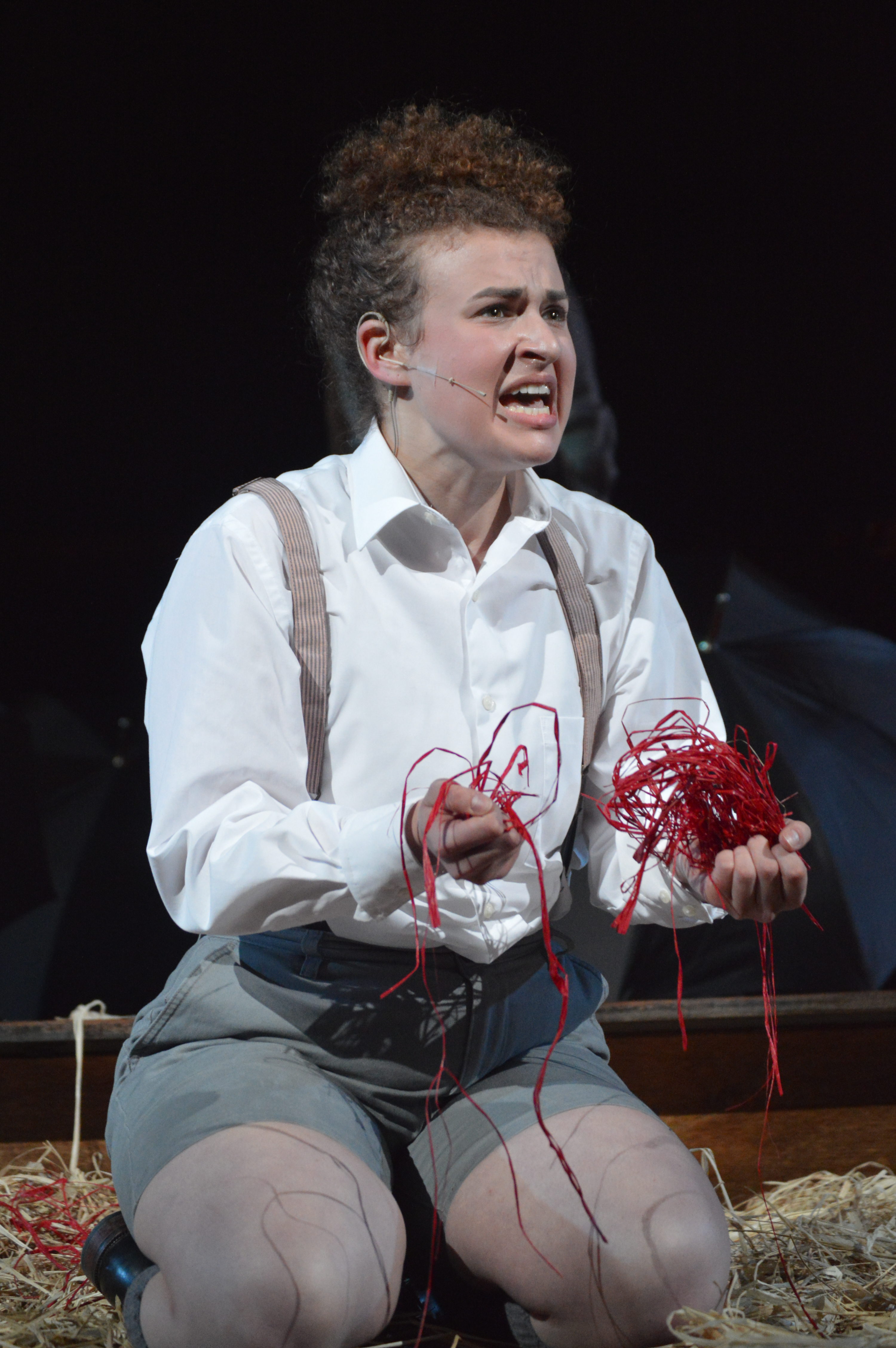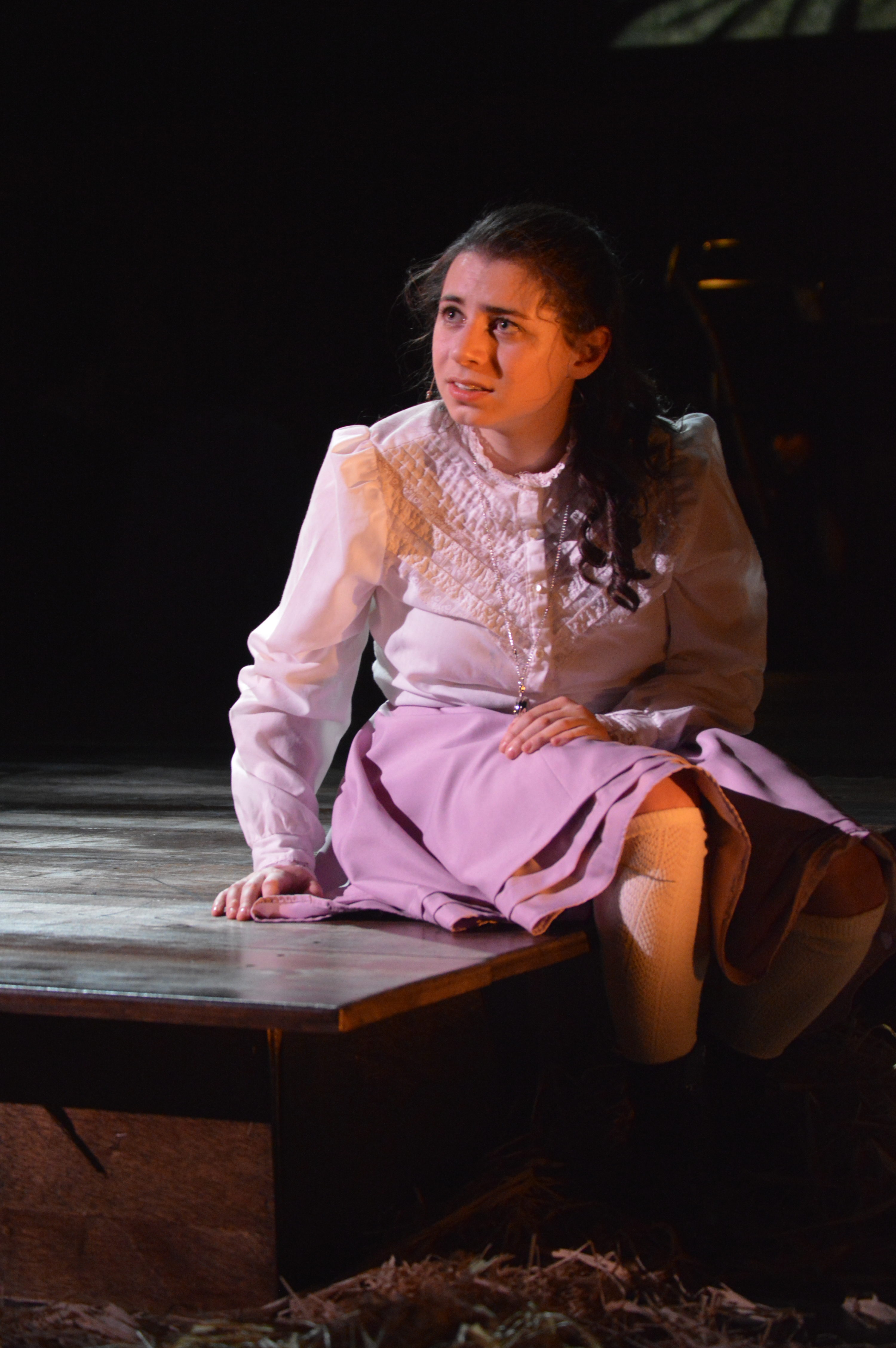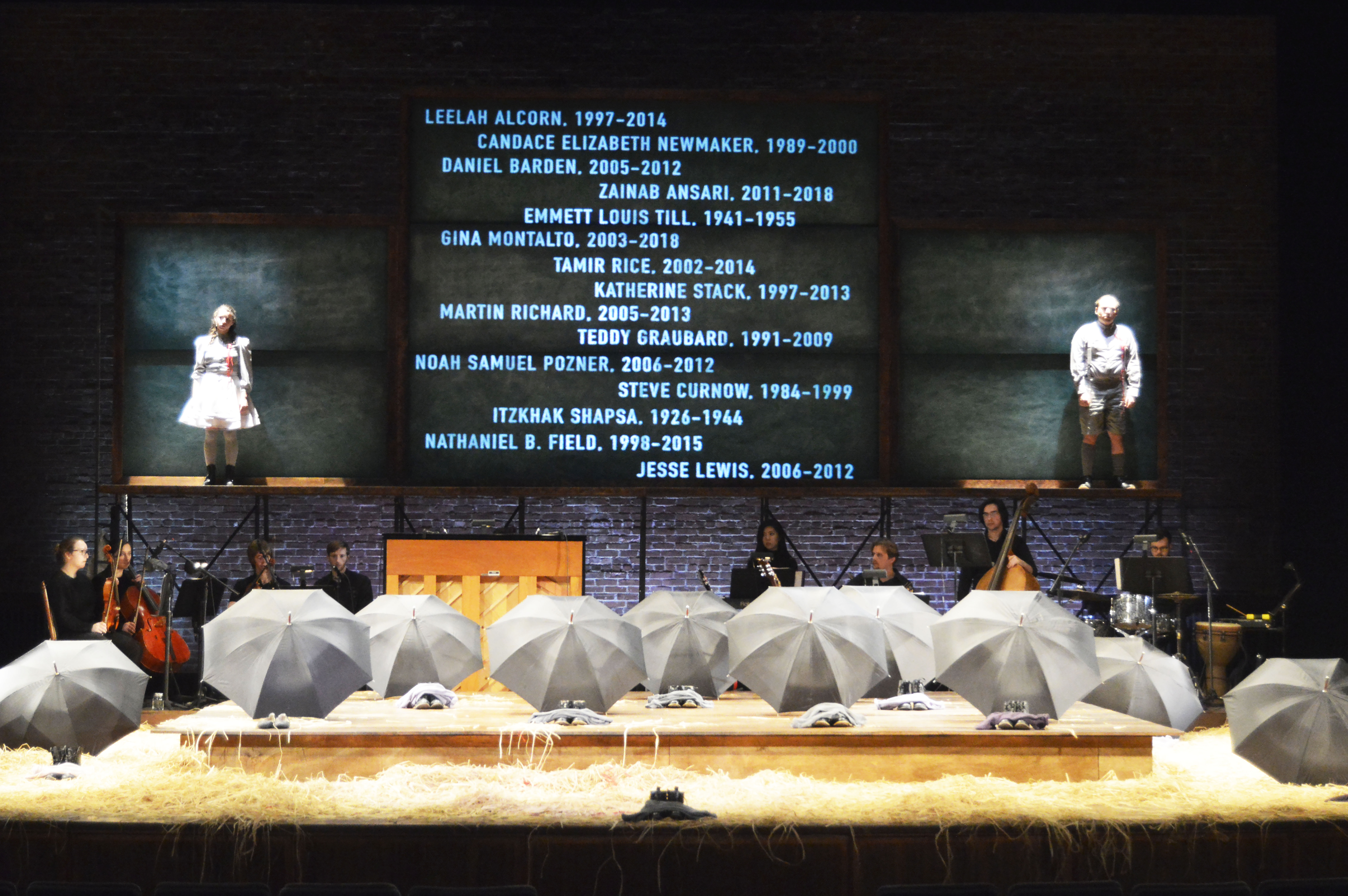When I entered Palmer Auditorium for a special-access viewing of the Theater Department’s dress rehearsal for the Tony Award-winning musical Spring Awakening, I was greeted by a scene similar to that of a war-torn battlefield. The large theatre was filled with wizened crew heads who donned multiple headsets and guzzled mass amounts of caffeine. They peered with bloodshot eyes over complex computer patterns and paused only to cry frantic orders over the din of vocal warm-ups. With varying amounts of scuffling, I watched a few determined individuals attempt to pave paths among the heaps of costumes and heavy tech equipment. All this occurred under the ever-shifting colors of the stage lights, which illuminated the room blood red one moment, moonlight blue another, with dark pauses in between.
The Palmer stage, which is most normally barren and mundane, had been covered in a great heaping of hay. The yellow straw took on the colors of the vibrant lights above it and gave off the appearance of a shadowy barn loft while the raised center stage featured dated school chairs in front of a massive, green chalkboard. On this chalkboard was projected a series of animations and text which echoed some of the shows impactful lines or backlit the rehearsing actors with starscapes and geometric illustrations.
The dress rehearsal commenced with little warning. All of the crazed disorganization from a few minutes past transformed into something concrete and sound. A story began to unfold, and not ten minutes into the show did I actually get real chills from its heart-rendering relevance to today’s society.
The show centers around the life of Melchior Gabor, a rebellious boy who is believed by the other students at his German private school to not have any beliefs at all. At Conn, Melchior was played by Sonia Joffe ’20, and while Spring Awakening has been performed an all-but excessive number of times—enjoying a long Broadway run and later revival, a United States tour, and several international productions—the production right here at Connecticut College is one of the few, if not the only, productions in the entire world that has show’s traditionally-male protagonist played by a woman.

Joffe as Melchior. All photos courtesy of Andre Thomas.
I am positive in my assertion that Joffe’s performance as Melchior does the role justice. Joffe strikes home the show’s message beautifully in her deliverance of it’s numerous show-stopping lines. Her voice stands out among the other school boys, focusing the audience’s attention on her every word and demanding that what she says be heard and felt by all. Her soliloquies on the lives and deaths of her character’s friends and loved ones brought me to tears, and I know by the end of this show’s run that I won’t be the sole person to have said that. The show will only have performances through March 4, but had this article been published a few days earlier, I’d have warned readers and prescribed tissues for Joffe’s bone-chilling take on the angry outcast.
To understand more about this character and the actress who plays him, I sat down with Joffe and discussed the complex part she plays in this production. I asked her specifically about the gender-bent role that she fills and what she thought viewers might take away from this change. She stated that much of it would: “honestly be up to audiences,” but that “Melchior in some ways represents toxic masculinity.” Joffe believed that “having a woman play a man who represents toxic masculinity brings up the question of: is toxic masculinity inherently masculine? Or is it just something that we attribute to men?”
Intelligent costuming which has Joffe in pink suspenders and pinned hair during the musical might give her the appearance of a school boy, but what about getting into character as one? “This has been really hard,” Joffe commented, adding that she is able to discover the essence of Melchior’s character in “finding truth in everything that’s said. While the private school rebel searches for his place in the world, Joffe remarked on how she too had to do some exploring to “find where I meet the character and how I connect with him.”
But Melchior and Joffe weren’t the only ones doing some soul searching in this musical. Julianna Goldluss ’20 portrayed Wendla, another lead role. From the way she acts and speaks, audiences will at first believe Wendla’s character to be a child. However, it is soon revealed that she is in fact a young woman, made dangerously naive to the realities of the world by her mother’s refusal to explain anything to her. Goldluss’ performance reminded me of Celia Keenan-Bolger’s performance as Laura Wingfield in The Glass Menagerie, as both actresses portraying a woman seeing a dark world with childlike innocence. Wendla interpreted complex situations with the blunt analysis that develops from the inability to completely understand a situation. In that way, Goldluss plays her character much like Scout in To Kill a Mockingbird, where the audience sees the terrors unfolding in front of her but she blindly trusts those who lead her into them, unable to see them for herself. Goldluss’ voice, in her sweet renditions of Wendla’s heart-filled solos, will guarantee audiences having “Mama Who Bore Me” stuck in their heads days after seeing the show. When Wendla was joined onstage by her impeccably-dressed, pastel-clad, private school girl squad, it felt like the Schuyler sisters just stepped onstage in Hamilton.

Goldluss as Wendla. All photos courtesy of Andre Thomas.
Charlie Gold ’18 plays Melchior’s best mate Moritz, a troubled young man plagued by strange dreams and frightened by daunting thoughts of failure. Moritz’s dark downfall is brilliantly portrayed by Gold, who is able to capture both Moritz’s strong emotions and yearnings alongside the character’s absence of feelings within his world of utter despair. Audiences will feel worried for Mortiz, wishing somehow that they could pull him from his plight, but getting stung when realizing they cannot change what happens to this doomed character onstage. Gold’s voice is quite unique as well, giving a new element to Moritz’s climatic song “Don’t Do Sadness/ Blue Wind” and providing a secondary narrative to follow. This compliments Wendla and Melchior’s story and further drives home that message of unspoken truth and hidden grief.
The rest of the cast is stellar, and each member seems to get a chance to shine on their own in having a small solo, duet, or monologue. Under the direction of David Dorfman, they dance clever choreography and accentuate powerful notes with equally powerful movements.
As I mentioned earlier, this show was incredibly relevant to the current political climate. Paralleling the message of the March 1 “Walk Out for Our Lives,” Joffe wants audience to take away from the show the message that: “the youth deserves to know.” As Spring Awakening problematizes a system created by adults that imperils children because of its inability to function properly, Joffe related the show to the pervasive issue of mass shootings.
“The system is still failing the kids and the kids are the ones who end up hurt when the adults don’t do anything about it,” Joffe said. She also thinks Spring Awakening is about leadership in young people and that they “have to be able to step up and change the world for the next generations.” Joffe explained that, in essence, Spring Awakening is about “understanding who you are and how you become that person.” In that lies the true “awakening” found in the title, and audiences should leave the show feeling compelled to wonder at who they truly are and how they want to change what is wrong about the world.










